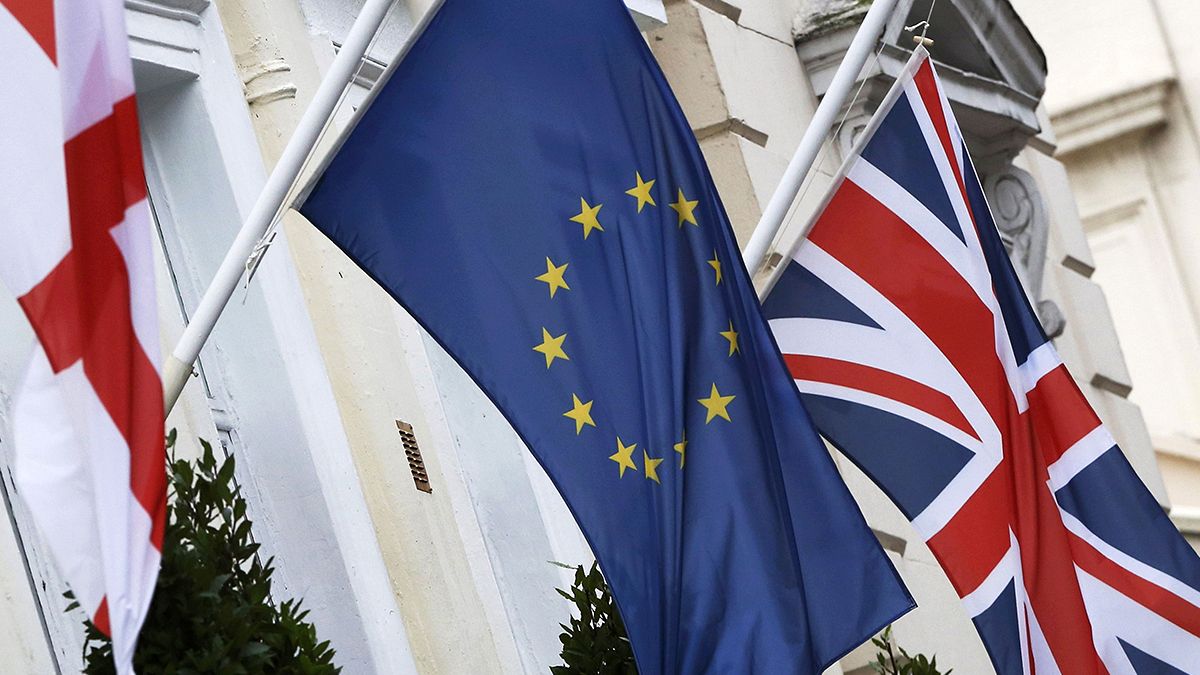Why is the focus on Brussels this week? European Council, 18-19/02/2016 Brussels Chaired by European Council President, Donald Tusk Heads of
Why is the focus on Brussels this week?
- European Council, 18-19/02/2016 Brussels
- Chaired by European Council President, Donald Tusk
- Heads of government from all 28 EU member states will attend
It is a crucial week in Brussels.
A crunch meeting of EU leaders will take place this Thursday and Friday, dubbed “Brexit debate week” by commentators.
What will the council focus on?
- United Kingdom
- Migration
Why is the focus on the UK?
EU leaders will try to reach an agreement creating a new relationship arrangement for the UK in the EU.
The British Conservative Party, under Prime Minister David Cameron, included a renegotiation of the UK’s role in the EU in its 2015 election manifesto.
The party won the vote outright in spring 2015, thereby setting the process of renegotiation in motion.
- There were discussions at the December 2015 European Council (EC) about UK plans for an in/out referendum
- The EC agreed to find mutually satisfactory solutions in four areas at this February meeting:
- Competitiveness
- Economic governance
- Sovereignty
- Social benefits and free movement
- EC President Donald Tusk issued proposals in early 2016
- Negotiations are ongoing with all 28 member states
A referendum on UK membership of the EU has been pencilled in for the 23rd of June.
UK Prime MInister David Cameron has promised to “campaign vigorously” for the country to stay with Brussels if leaders at the summit agree to his demands for renegotiation.
These include, among other things, an emergency brake on benefit payments to EU migrants and a UK opt-out from ‘ever closer union’.
Cameron needs all the other 27 leaders to agree to back the deal.
EC President Donald Tusk has cleared his diary to hold talks with many of the main EU leaders this week. He will visit five countries on Monday and Tuesday alone: France, Romania, Greece, the Czech Republic and Germany. Back in Brussels, he will talk to the Presidents and Prime Ministers of Latvia, Croatia, Serbia, Macedonia, Slovenia and Turkey along with EU Commission President Jean-Claude Juncker before the start of play on Thursday morning.
When will we know the outcome of the summit?
Observers say an announcement could come as soon as agreement has been reached and the decision voted on.
This could be during Friday during the day, during the evening or in the early hours of the morning, depending on how talks progress.
What if there is no agreement?
Commentators say talks are likely to go down to the wire.
The UK foreign secretary Philip Hammond said on Thursday the plan is still only a working draft. Outstanding issues remain to be addressed.
There has been speculation that Donald Tusk could call a further emergency summit if there is no agreement at this week’s meeting.
What will happen regarding the migration crisis?
- The EC will check to see if previous decisions have been implemented
- It will prepare the ground for decisions to be taken at its next meeting in March
- Discussions will focus on humanitarian assistance, external border management, the EU-Turkey Action Plan and management of migration hotspots
#Trending
#UKinEU #EUref
Did you know?
The personal representatives of heads of state and government who prepare the groundwork in the run-up to international meetings of this kind are known as sherpas.
What they are thinking
The most recent poll suggests that, despite his recent pledges, the large majority of British citizens expect David Cameron to get a poor deal out of this week’s negotiations.
- 58% – think the UK Prime Minister will not get what is being asked for
- 21% – think he will get what is being asked for
- 22% – undecided
Regarding membership of the EU itself, British public opinion is fairly evenly divided.
- 29% – think they would personally be better off if Britain remained in the EU
- 27% – think they would personally be better off if Britain left the EU
The poll was carried out by market research company COMRES and published in key UK newspapers at the weekend.
What they are saying
“In a world where Russia is invading Ukraine and a rogue nation like North Korea is testing nuclear weapons, we need to stand up to this aggression together – and bring our economic might to bear on those who rip up the rulebook and threaten the safety of our people.” – David Cameron
“This is a critical moment. The risk of break-up is real because this process is indeed very fragile. Handle with care. What is broken cannot be mended.” – EU Council President Donald Tusk.
“There will be an irreversible dislocation of the EU if a Brexit goes ahead” – French Prime Minister Manuel Valls
“The way talks have progressed so far are putting me in a confident mood” – German Chancellor Angela Merkel
“I can’t predict how many hours sleep I will get from Thursday to Friday, but we are focused on finding a solution” – Angela Merkel
“My wish is that the United Kingdom will remain an active member of a successful European Union in the future” – Merkel
“Europe needs Great Britain and Great Britain needs Europe.” – Merkel
Sources:
